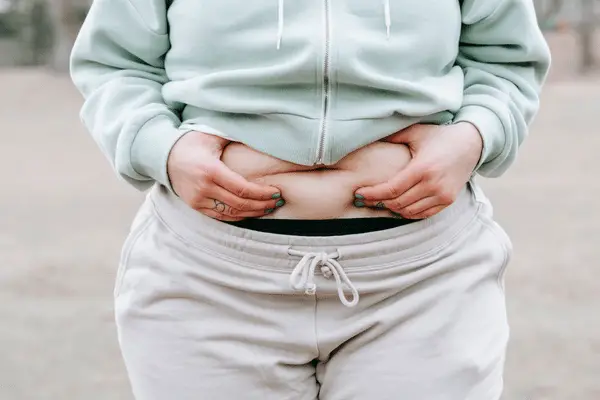There is a lot of information on the internet about whether or not olive oil makes you fat. Some say it does, while others maintain that it doesn’t. In this post, we will look at some of the research on the matter and try to come to a conclusion.
What is Olive Oil and Where Does it Come From
Olive oil is a type of vegetable oil extracted from olives, the fruit of the olive tree. It has been used for cooking and as a salad dressing for centuries and is a staple of Mediterranean cuisine.
The olives are first harvested and then crushed to release their juice. This juice is then filtered and refined to create olive oil.
Extra virgin olive oil is of the highest quality and has a fruity, peppery flavor. It is made from pure, cold-pressed olives and has less than 0.8% acidity.
Virgin olive oil has a slightly bitter flavor and is made from virgin olives that have been cold-pressed. It has an acidity level of between 0.8% and 2%.
Olive oil that has been refined or processed is lower in quality but has a milder flavor. It is made from both virgin and non-virgin olives that have been treated with heat or chemicals.
The Health Benefits of Olive Oil

Olive oil is often used in cooking and has many health benefits that people may be unaware of.
1-Olive Oil is A Healthy Fat
Unlike other oils, olive oil is unique in that it comprises mostly monounsaturated fatty acids (MUFAs). These fats have been shown to offer numerous health benefits, including reducing the risk of heart disease and stroke.
Moreover, olive oil is also a good source of antioxidants, which can protect against cell damage and inflammation.
While all these factors make olive oil a healthy choice, it’s important to remember that it is still a fat and should be consumed in moderation.
2-Olive Oil is a Good Source of Antioxidants
What’s more, olive oil is also a good source of antioxidants, which can protect against cell damage. Olive oil is a healthy choice, but it’s important to remember that it is still a fat and should be consumed in moderation.
3-Olive Oil Can Help Protect Against Heart Disease
One large-scale study found that people who consumed the most olive oil had a lower risk of developing cardiovascular disease than those who consumed the least.
Additionally, olive oil has been shown to improve blood pressure and cholesterol levels, both of which are risk factors for heart disease.
4-Olive Oil Can Help Reduce Inflammation
Inflammation is a natural process that helps our bodies heal. However, when inflammation becomes chronic, it can lead to several health problems, including heart disease and arthritis.
Thankfully, there are many things we can do to reduce inflammation. One simple and effective remedy is to use olive oil.
Olive oil contains oleocanthal, an anti-inflammatory compound that helps to reduce the production of inflammatory cytokines.
In addition, the monounsaturated fats in the olive oil help to protect against cell damage and reduce the risk of chronic diseases.
The Calories in Olive Oil
Olive oil is a healthy alternative to other cooking oils. However, olive oil is also high in calories. A single tablespoon contains 120 calories, so it is essential to use it sparingly.
When cooking with olive oil, it is best to measure the desired amount ahead of time and discard any unused portions.
This will help to prevent accidentally consuming too many calories.
In moderation, however, olive oil can be a healthy addition to your diet.
Does Olive Oil Make You Fat

There is a lot of debate surrounding the question of whether or not olive oil can make you fat. Some people believe that olive oil is a healthy alternative to other oils and thus, can help you lose weight.
Others believe that because olive oil is high in calories, it can lead to weight gain. Ultimately, the answer to this question depends on various factors, including your diet and exercise habits.
If you consume more calories than you burn off, you are likely to gain weight, regardless of the type of oil you use.
However, olive oil may not be the best choice if you are trying to lose weight, as it is high in calories.
Similarly, if you have a medical condition that prevents you from exercising, olive oil may also contribute to weight gain.
Ultimately, the best way to determine whether or not olive oil will make you fat is to speak with your doctor or nutritionist. They can help you create a healthy diet and exercise plan that fits your individual needs.
What Foods Have a Lot of Olive Oil?
Olive oil is found in many foods. It is known for its health benefits, including reducing the risk of heart disease and diabetes. However, it also has a high caloric density. Here are some of the foods with the highest concentration of olive oil:
Salad Dressings
Most salad dressings contain some amount of olive oil. The exact amount can vary depending on the recipe, but it is typically between 1 and 2 tablespoons.
This means that a typical salad dressing will contain between 120 and 240 calories from olive oil.
To put that into perspective, you have to burn 3500 calories in order to lose 1 pound.
Sauces and Marinades
While the amount of olive oil in sauces and marinades can vary, it is typically around 30%. This means that a typical serving of sauce or marinade will contain about three grams of olive oil. Three grams of olive oil contain about 27 calories.
Pestos
Pesto is a popular sauce, typically made with olive oil, fresh basil, pine nuts, and Parmesan cheese. While the exact ingredients can vary depending on the recipe, olive oil is crucial. In fact, most pestos contain a significant amount of olive oil – anywhere from ¼ to ½ cup per batch.
This means that a single serving of pesto can easily have over 10 grams of fat, mainly from olive oil.
While olive oil is healthy in moderation, it’s essential to be mindful of how much pesto you’re consuming if you watch your fat intake.
Hummus
Although the exact ingredients vary depending on the recipe, hummus typically contains chickpeas, olive oil, tahini, garlic, and lemon juice. Of these ingredients, olive oil is by far the most prevalent, making up anywhere from 50 to 75 percent of the total volume.
This high percentage of olive oil is what gives hummus its smooth, creamy texture.
However, it also makes the dish extremely calorie-dense.
Bruschetta
Bruschetta is a dish that originates from central Italy. It typically consists of grilled bread that is rubbed with garlic and topped with olive oil, tomatoes, and other seasonings.
While the ingredients of bruschetta can vary depending on region and personal preference, olive oil is one of the key ingredients.
Crackers
Crackers come in many different shapes, sizes, and flavors, but one thing that most crackers have in common is a small amount of olive oil. This oil helps keep the crackers from drying out and becoming brittle and adds a subtle flavor that compliments the other ingredients.
While the amount of olive oil in crackers can vary depending on the recipe, most crackers contain between 1 and 2 percent olive oil.
This means that a serving of crackers generally contains less than half a gram of olive oil.
Bread
Did you know that it is also a common ingredient in bread? While the amount of olive oil used can vary depending on the recipe, it is typically around 10-15% of the total ingredients.
This may not seem like much, but it can actually have a significant impact on the taste and texture of the bread.
How Much Olive Oil a Day for Weight Loss?
Olive oil has long been touted as a healthy option for cooking. It is also said to be beneficial for those looking to lose weight. But how much olive oil a day should you consume for weight loss?
Recent studies have shown that olive oil can help to boost metabolism and promote satiety.
Olive oil is also a good source of monounsaturated fats, which have been shown to help reduce belly fat. For these reasons, it is believed that consuming one to two tablespoons of olive oil per day can help with weight loss.
When choosing olive oil for weight loss, it is crucial to select a high-quality product. Extra virgin olive oil is the best option, as it has the highest concentration of healthy monounsaturated fats.
It would help if you also looked for an oil that is cold-pressed and minimally processed. These factors will help ensure that you get the most benefits from the olive oil.
So if you want to lose weight, including olive oil in your diet may be a helpful strategy. Be sure to choose a high-quality product and consume one to two tablespoons daily for the best results.

